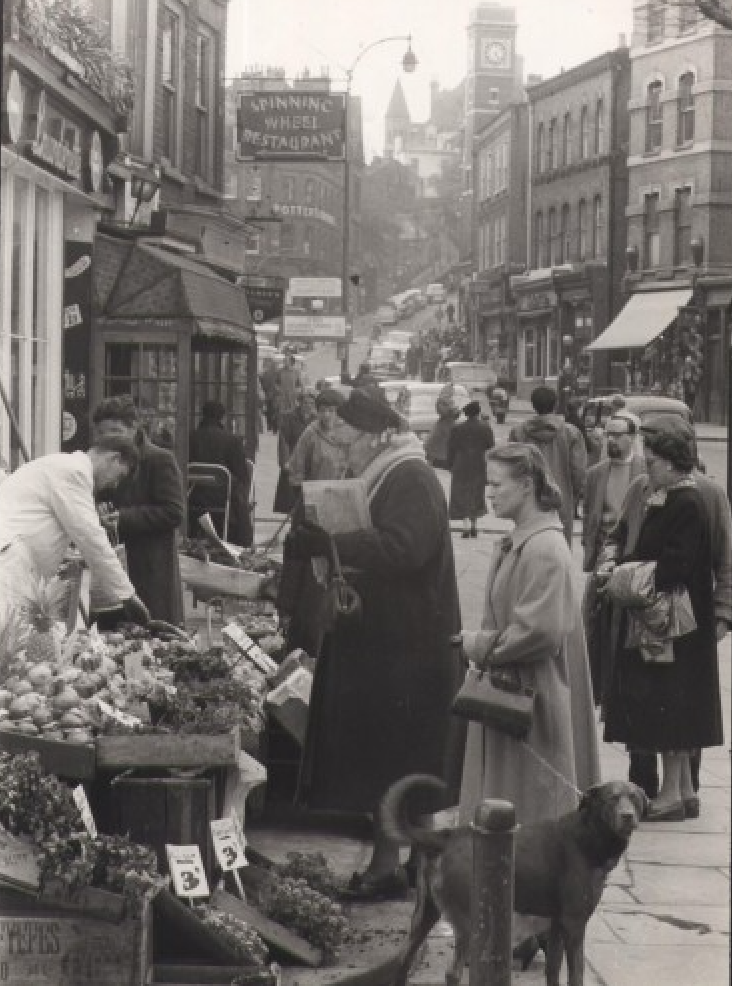Adrian Turner remembers Hampstead village in the 1970s
Posted by Adrian Turner, January 2022
Adrian Turner worked at the Everyman from 1969 to 1977, initially as Assistant Manager and, after the death of James Fairfax Jones in 1973, as Programmer. A full account of his time at the Everyman can be found in Guest Blogs.
Working at the Everyman meant being a respected part of a community if not a pillar of it. I found the village scene convivial, even if it was more subdued than other parts of London such as the King’s Road area or Notting Hill. Maybe because of the Heath, Hampstead seemed more country than city, despite the Tube station which was London’s dankest and deepest. Escalators didn’t have the reach so it was clanky old lifts and you emerged into the light to the sound of Bob selling the News and Standard! As a manager of the Everyman I was, after all, a local tradesman like news vendor Bob, like the greengrocer or the butcher or the owner of the High Hill Bookshop, Ian Norrie, who always seemed to be in a bad mood.
Opposite the Everyman was a great bakers and a wonderful patisserie called Louis. Up the hill was Hampstead Hi-Fi which sold expensive audio equipment and only classical records. One of the assistants was the nephew of the conductor Jascha Horenstein. On Flask Walk future novelist and humorist Joseph Connolly ran a secondhand bookshop specialising in modern first editions. Also in Flask Walk was the eponymous pub in which the pot man would go round collecting used glasses and making sure he gulped down everyone’s dregs most of which ended up on his shirt. I thought he was disgusting.
On Perrin’s Court, a pedestrian thoroughfare, there was a great local restaurant, The Spinning Wheel, a fancy contemporary knick-knack place called That New Shop and the modern offices of the local newspaper, The Ham and High, whose legendary editor Gerry Isaaman, hired me as the paper’s film reviewer when Tom Hutchinson moved to the Sunday Telegraph. And every Wednesday afternoon, after my shift, I would walk down to a rather manky coffee shop, called the Prompt Corner, to play chess for money with various mittel-Europeans who all seemed to have numbers tattooed on their arms. Yes, Hampstead sometimes felt like being in the country, Stow-on-the-Wold perhaps, but in that smokey cafe you could have been in Warsaw or Budapest.
Apart from Louis, all of these places are long gone. It is a vanished world
